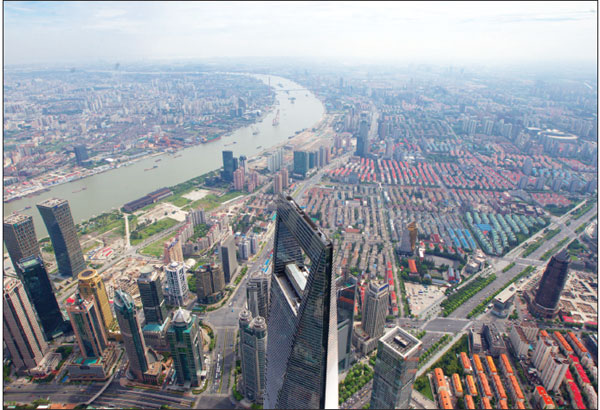Shanghai updates plan to attract top minds
New measures illustrate President Xi Jinping's vision to turn Shanghai into a global center for innovation
Shanghai's quest to become a global science and technology center by attracting top foreign talent to boost innovation is quickly gathering pace, as the local government released an updated list of 20 measures on June 29 that focuses on identifying experts, getting the best out of them, as well as providing attractive incentives to those who stand out.
While China's largest and most cosmopolitan city is already a magnet for domestic and international talent, this continued push reflects President Xi Jinping's growth strategy for Shanghai. The city already has 120,000 foreign employees and entrepreneurs, in addition to 88,000 certified experts from abroad. On the domestic front, there are currently 164 academics from the Chinese Academies of Sciences and Engineering, and more than 300 members in a national talent program aimed at cultivating young academic and technology prodigies.
Xi had earlier in May expressed belief that a pool of world-class foreign talent with international perspectives will form a solid foundation for progress and spearhead a revolution in science and technology.
"These measures are designed to be practical and effective and they can turn Shanghai into a place where such talents can enjoy their careers and realize their full potentials," said Shanghai Party Chief Han Zheng.
One of the notable measures involves offering bigger rewards to those who achieve significant success in their work or research and playing a vital role in the development of a marketable product.
"To further encourage technological innovation from foreign talents, we will introduce a market-based price mechanism and those who achieve considerable results with their research will stand to gain no lower than 70 percent of the resultant earnings, up from the previous benchmark of 50 percent," said Ma Xingfa, deputy director of the Shanghai Science and Technology Commission.
Another measure is aimed at promoting entrepreneurship within the talent pool, with the new policy extending the incubation period for startups to between three and five years. During this period, these entrepreneurs would still be able to receive social security, enjoy the right to earn promotions at their current companies and apply for other jobs.
However, some experts say this particular measure provides aspiring entrepreneurs with too much protection.
"We usually consider half a year as a reasonable incubation period for a startup. This policy gives entrepreneurs too much leeway and this could limit the opportunities for more promising ventures," said Zhou Xuanbo, a researcher with the information network under the Development Research Center of the State Council.
Also part of the agenda is talent retention and the local government has tweaked visa regulations to make it easier for foreigners to apply for a permanent residence. The new policy states that those with an annual income of 600,000 yuan ($96,700) and above and who have paid 120,000 yuan as individual income tax per year for four consecutive years are eligible to apply for permanent residency. Under the original provisions, foreigners must at least hold a vice-general manager role or a title as associate researcher or above before they could apply.
In other words, high-level foreign workers will now be identified by their income and tax payments instead of job titles.
The identification process for top local talents has also been modified. According to Mao Dali, deputy director of the Shanghai Municipal Human Resources and Social Security Bureau, the Shanghai government will be on the lookout for four types of domestic talents - those with entrepreneurial skills in venture investment, experts in enterprise science, experts in technology, and those who specialize in intermediary services for innovative entrepreneurship.
The most outstanding of the lot will also get to enjoy residency privileges. This group of individuals will be able to obtain a Shanghai residence permit within three and five years, down from seven years.
"The permanent residence registration policy will be given full play in a bid to attract talents from places outside Shanghai. Details are being mulled and are expected to be published in September," Mao said.
|
The Shanghai government's new measures make it easier for foreigners to work in the city. Gao Erqiang / China Daily |



















